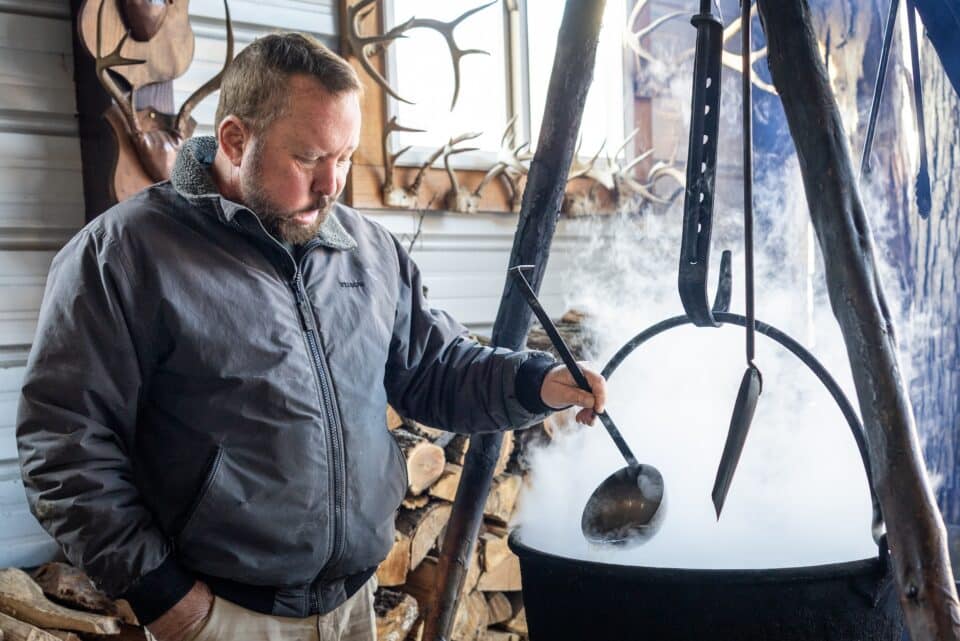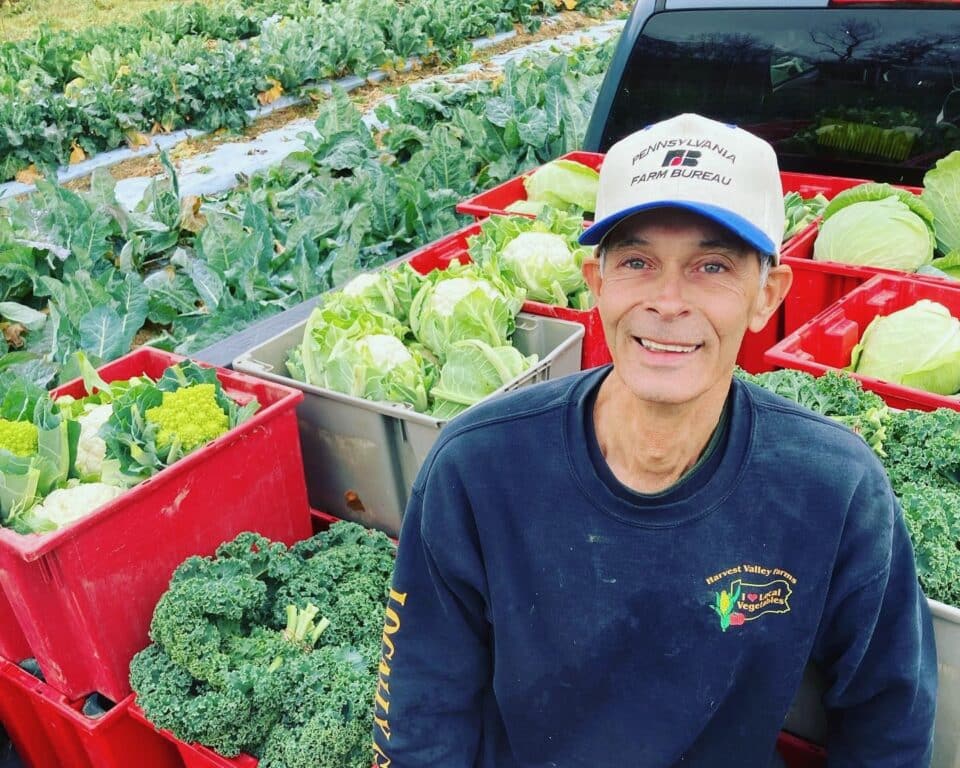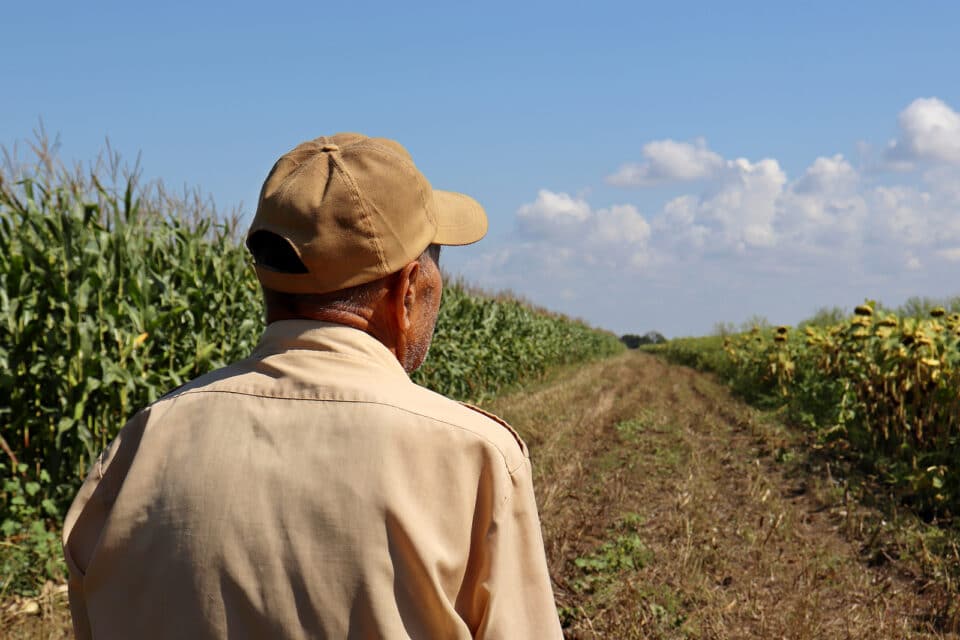To celebrate PA Beef Month this May, we’ve teamed up with the Pennsylvania Beef Council to bring you some great stories and content about this important agricultural product in our state!
Beef is a big deal here in Pennsylvania. Across our beautiful state, there are over 13,000 beef cattle farms, and over 22,500 total cattle farms, making us the top cattle-producing state in the Northeast U.S. The people and families who run these cattle farms share a passion for their work, and a dedication to the animals they raise; yet they each have their own unique stories and situations to share.
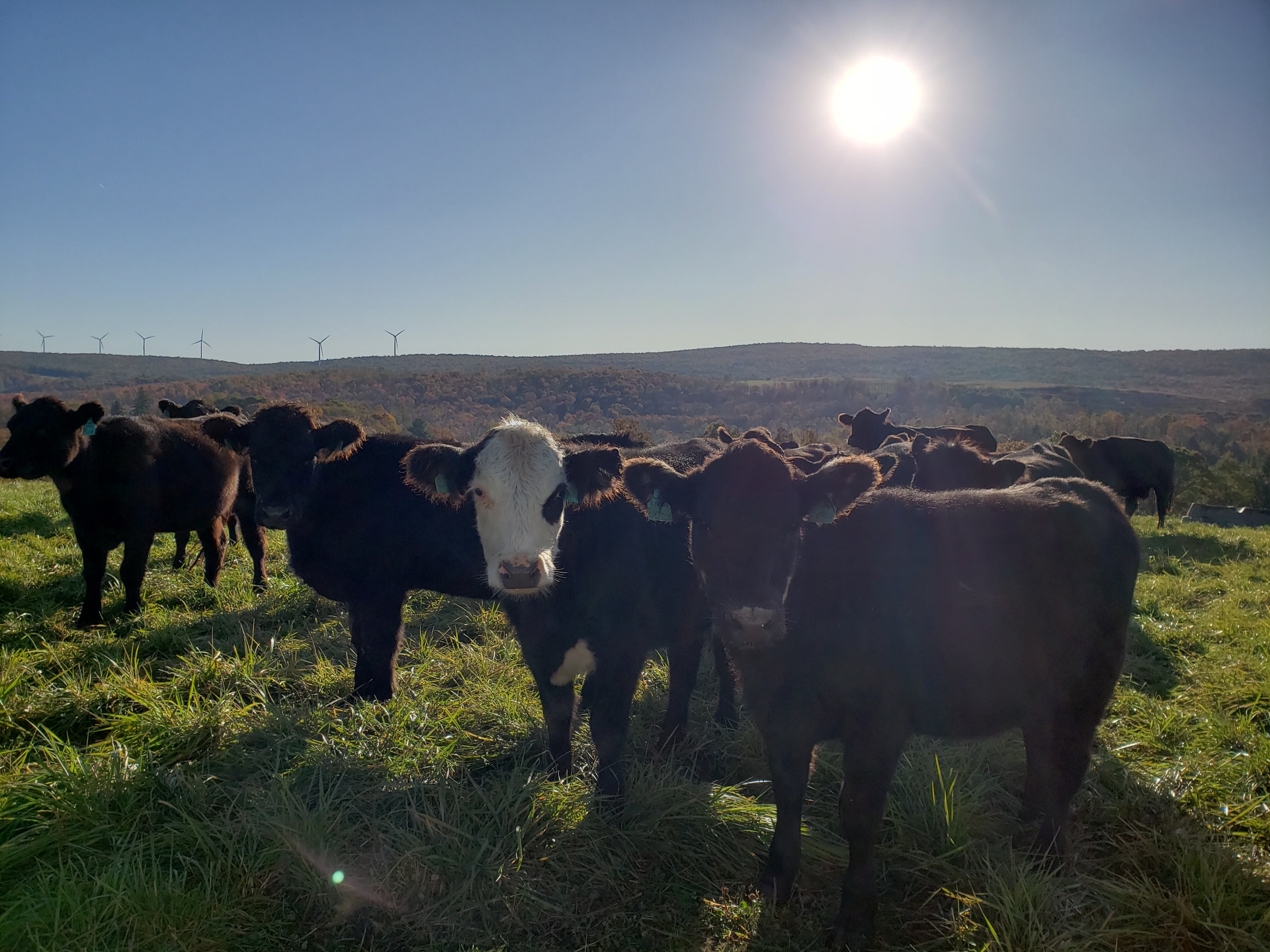
Cattle at Maple Valley Cattle Company
To celebrate Pennsylvania Beef Month, we met with a number of beef farmers from across the Commonwealth to learn more about their day-to-day operations, the challenges they face and the journeys they’ve been on as professionals in the agricultural industry. Here, we’re pleased to share stories from three Pennsylvania beef farmers from Western PA:
Maple Valley Cattle Company, Somerset County (Meyersvale, PA)
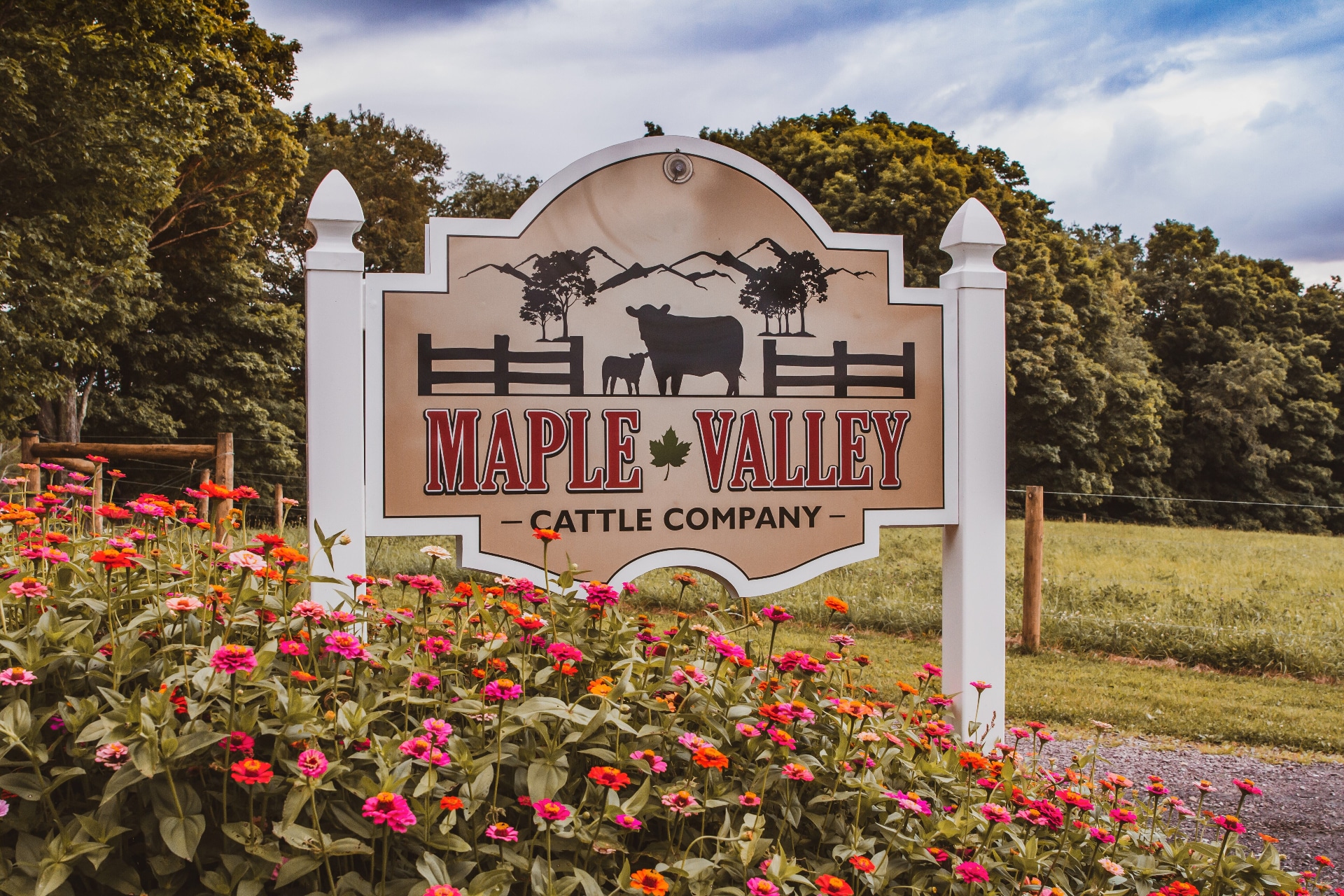
Amanda Butterfield didn’t touch a cow until she was 18. But the first time she did, as a pre-vet student in the beef barns at Penn State, she fell in love with agriculture. After graduating, she got a job as a field rep for the Dairy Farmers of America in Indiana. That’s how she met her now-husband, Mike Butterfield, who was managing a large dairy in Indiana at the time.
Mike’s lifelong dream was to milk cows, so in 2017, the couple moved to Pennsylvania to manage a dairy farm, but soon transitioned to a cow-calf operation.
“Now we have about 80 head of cattle (and 130 in total), and are looking to grow even bigger,” Amanda says. “We even have a pet steer named Chuck, who runs around with our dogs. He’s literally a ton of fun!”
At Maple Valley, they raise mostly Angus and Charolais. A cow-calf operation means that on their farm, the cows have babies, and the Butterfields raise them up to between 500 and 700 pounds (about 4 to 6 months old). They wean the calves, get them all vaccinated and de-wormed, castrate the bulls, and then sell them to a stocker. Some of the females they keep to be moms.
“Cows are amazing creatures,” Amanda notes. “From a sustainability standpoint, they eat things we can’t consume and utilize land spaces we can’t use. Also, they’re calm. If you’re having a bad day, you can just sit in a pasture with cows, they’re like big, gentle therapists. I love these creatures, and our goal here is to give them a good life and the best death as possible.”
At Maple Valley Cattle Co., they practice intensive grazing, and try to ensure that the animals are stress-free. They’ve hired agronomists to help determine which grass species work best in their climate, and add legumes and high-protein products to the pastures, as well. The cattle have fresh water access, with mineral and protein tubs, to make sure they have healthy offspring. All of the animal-handling systems on the farm were designed by Dr. Temple Grandin, the renowned scientist and animal behaviorist.
“Animal welfare is really important to us, and at any sign of disease, the animal is immediately evaluated and treated by us or our vet,” Amanda says. “My husband has calved thousands of animals and the safety of the cow and calf are of the utmost priority.”
For more information about Maple Valley Cattle Co., check out its website and follow along on Facebook and Instagram. 1264 Maple Valley Rd., Meyersdale, PA; (765) 730 – 9302
McElhaney Family Farm, Beaver County (Hookstown, PA)
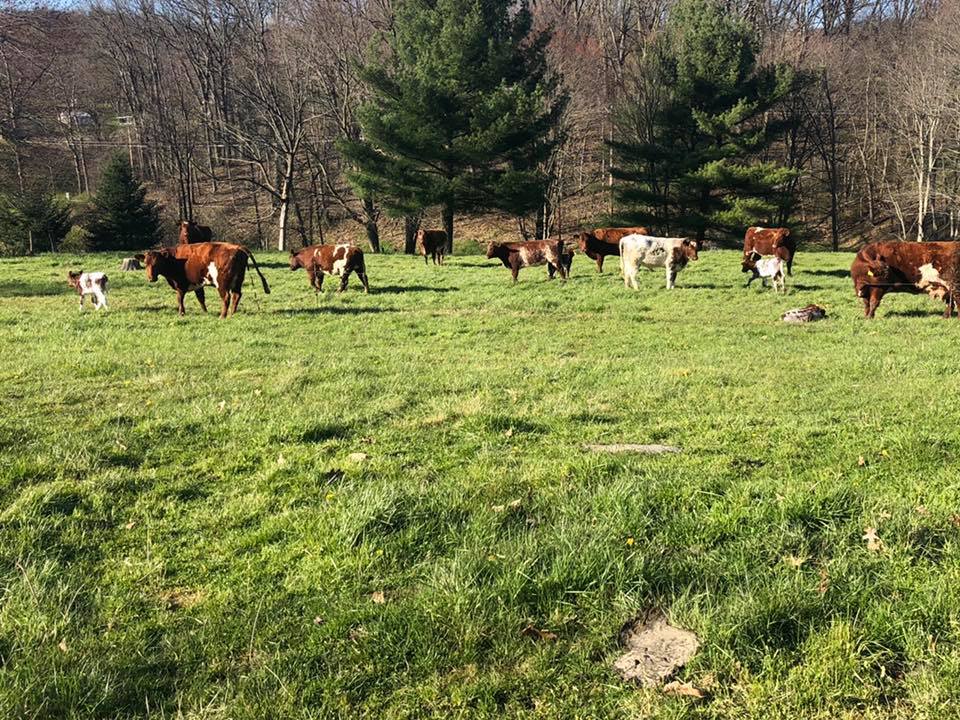
Dick McElhaney has always been connected to his family’s farm: His parents and grandfather farmed, and he helped out part-time, while also working as an aircraft mechanic for 31 years. In 1970, their property was bought by the Pittsburgh International Airport, which claimed it through eminent domain. The McElhaney family moved farther west in Pennsylvania to find more land and started their operation over again. The rolling, hilly land where they are now in Hookstown (just a few miles from the West Virginia border) is best for raising cattle, Dick says, though they did try their hand at farming various crops throughout the years.
“We’ve always raised purebred shorthorn cattle, the oldest beef breed in the United States,” he says. “That’s what we raise and still raise, we just do it a little different now.”
Dick retired from his mechanic career in 1995 and focused on farming full-time. His son David also helps on the farm, in addition to an off-farm job in regional sales. Together, they raise about 100 head of cattle from birth to processing, which takes between 14 and 18 months. Their cow-calf operation used to culminate in a sale every September, but in 2005, the McElhaneys switched gears to retailing their beef, which is the model they’ve followed ever since.
Each week, they set up at three farmers markets in the nearby area: in Ambridge, PA at St. Mary’s Church on Thursdays from 4 to 7 p.m.; in Sewickley, PA at St. James Church on Saturdays from 9 a.m. to 1 p.m.; and in Beaver, PA in the Rear Courthouse Parking Lot on Saturdays from 10 a.m. to 1 p.m. They’re also in the freezer at Janoski’s Farm Market in Clinton, PA.
He credits their top-quality, highly marbled beef to the way the steers are fed, and the processor that they use, though finding the right processor who is USDA-approved and knows how to butcher the cuts they want, has been one of the biggest hurdles over the years.
After working for so many decades as a beef farmer, Dick says one thing he observes that people don’t understand is just how much it takes to produce beef. From long drives to the processing plant, to the heaps of regulation paperwork required from federal, state and county governments, to the rising costs of goods like fertilizer, plastic and diesel fuel.
Due to these factors, Dick says they recently had to raise their prices.
“We didn’t want to, but we didn’t have any choice,” he says. “We can’t be giving it away.”
To learn more, visit McElhnaey Family Farm’s Facebook page. 149 Pittsburgh Grade Rd., Hookstown, PA; no phone.
Logan Family Farms, LLC, Westmoreland County (Irwin, PA)
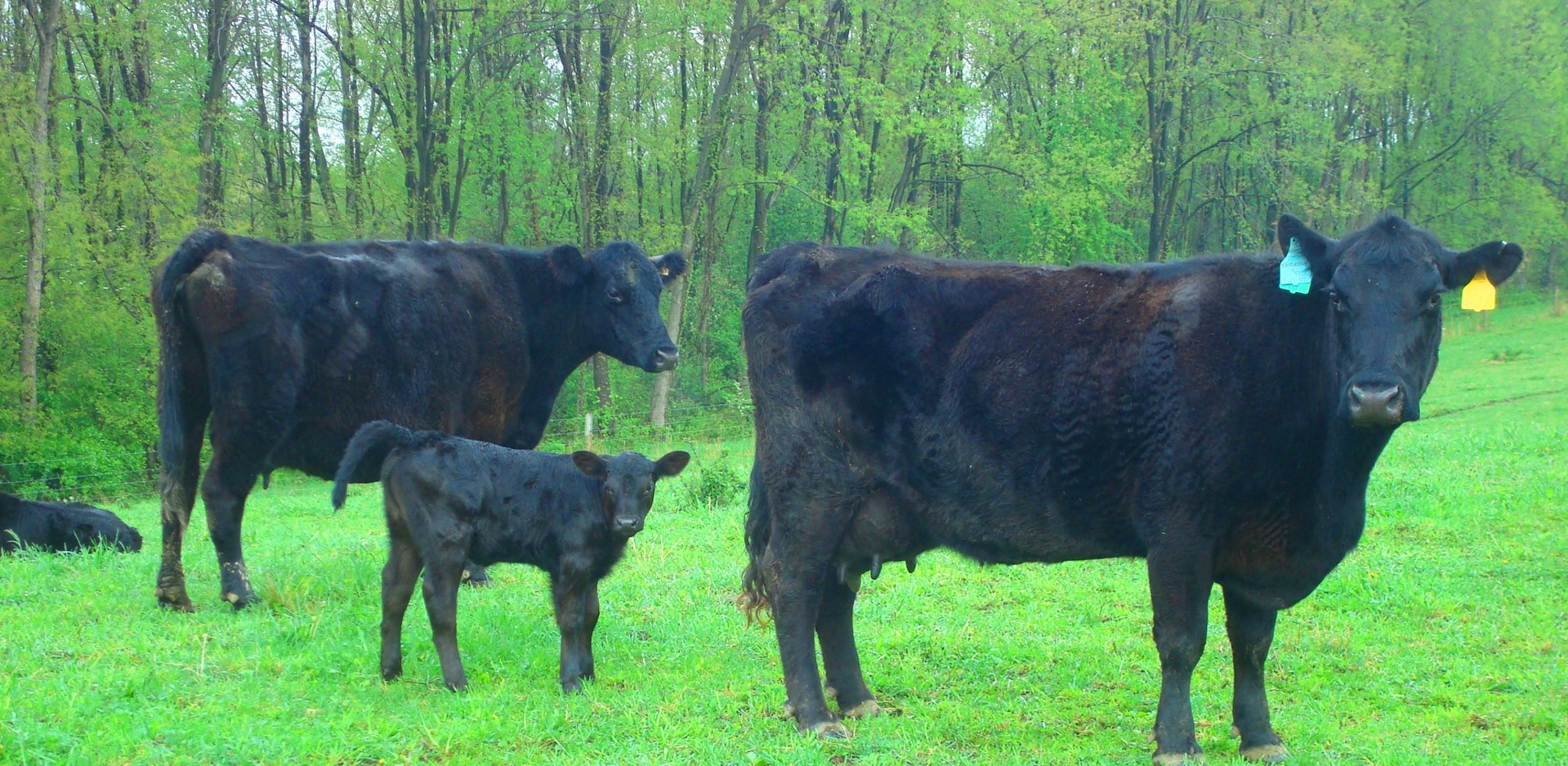
Tom and Joann Logan met in a very country-song-about-farmers way: at a county fair, showing cattle with 4-H! The young couple both came from farming families and had a desire to start their own venture.
“Upon marrying Tom, his love and passion to farm was foremost in his mindset, but purchasing any land for agricultural use has become exorbitant since the suburban explosion from the Pittsburgh area,” Joann remembers. “That left us with the option of renting various parcels of land to begin our agricultural operation. That was nerve-racking as, at any one moment in time, after you have enriched the soil with lime and fertilizer, you could be asked to vacate the land.”
The couple decided to move to Tom’s family’s 70-acre farmstead, which was established in 1894. The land is split by the Pennsylvania Turnpike, and has since been shaped by the housing developments, roads and pipelines that have disrupted the farm.
“Needless to say, our farm does not have a pastoral peaceful setting, but that is where God put us!” Joann says.
The Logans decided to utilize the exposed location of the farm to build a direct market for its beef. This seemingly simple task was actually quite complicated: They had to find a USDA-inspected partnering meat processor, develop an FDA-approved label, and insure a quality product that was available year-round. The traditional beef operation usually calves in the spring, raises the cattle for 16-18 months, and then harvests them the following fall. The Logans also wanted to be able to source-verify all their cattle so that they could truly say that they did not feed any antibiotics or utilize growth hormones or steroids in their development.
“We aggressively monitored that carcass quality and the genetics of both the bull we used for breeding and our foundation mother cows. As it takes three years from the time of conception until you have a steak on the plate, this refinement of our cattle’s bloodlines took some time,” she notes. “At the same time, we had to restructure our breeding time so that we would have calves year round. This took more management of the cattle in exposure to the bull and watchful observation for calves being born in the winter’s frigid temperatures.”
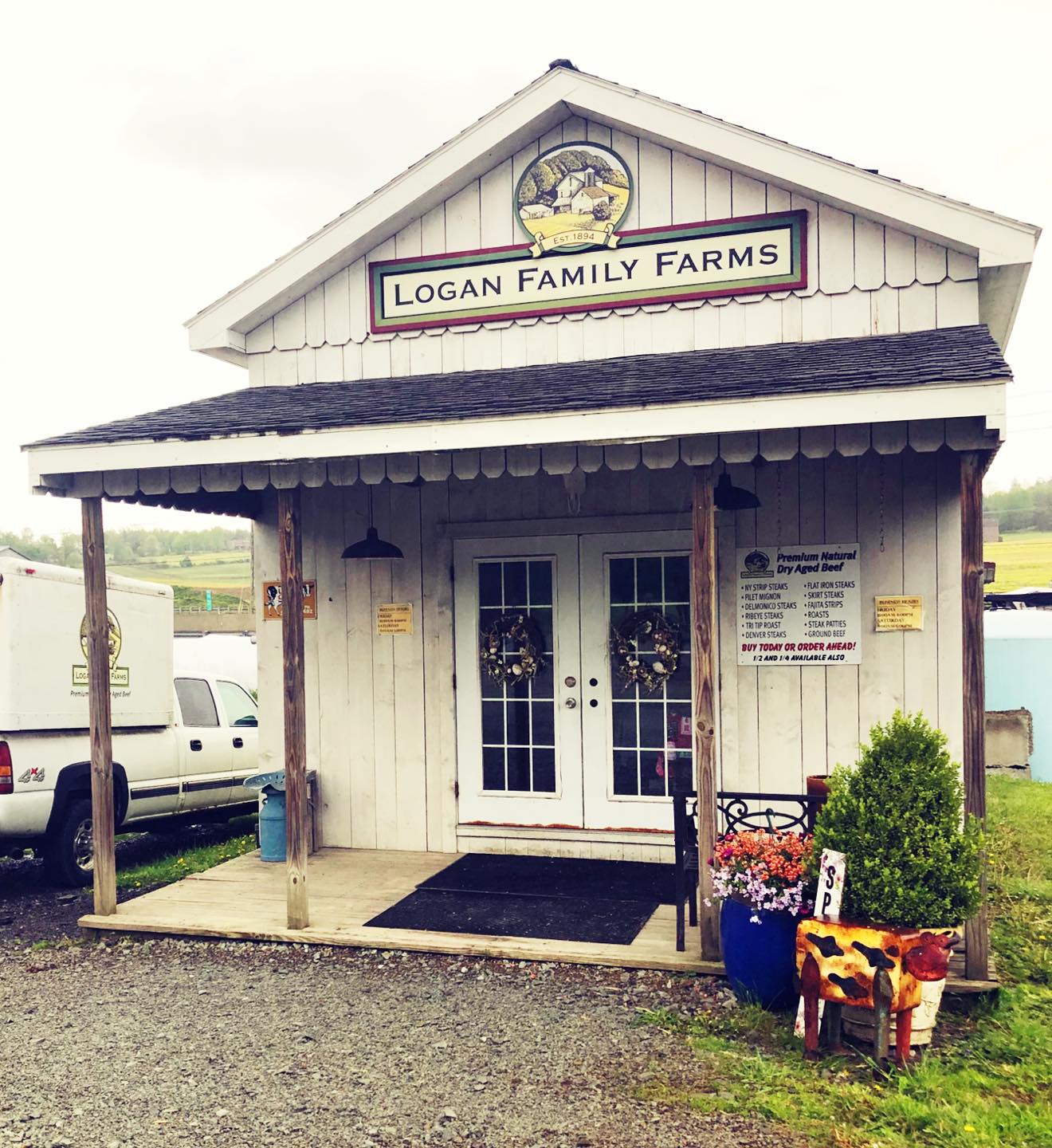
Once the market opened, they realized that even though thousands of cars passed by each day, they needed a different sales avenue for their dry-aged beef. So in 2010, they began to sell at between seven and 10 farmers markets in the Pittsburgh region. Though it took awhile to get established, they gained fans and followers from the surrounding communities. Joann credits part of their initial success to the fact that they began grilling Logan Family Farms Steakburgers at the markets where they were vendors.
“We’d have families that wait for us at the markets for their weekly burger fix. I have had children ages 7 and above tell their parents that all they want for their birthdays was to eat our Steakburgers!”
Word of mouth, participating in food shows and other marketing efforts, like their Drop Box meat delivery service, has helped Logan Family Farms grow their business. Along the way, they’ve also developed relationships with area grocery markets and local chefs as other outlets for their products.
At present, Logan Family Farms raises about 250 head of cattle, and cooperates with three other farms to carry its selected beef blood lines for help with the Mother Cattle and calving. In addition to the beef production side of the farm, the Logans plant and raise about 500 acres of soybeans and 600 acres of field corn. The farm is a family business, and the whole family is involved: Their adult children, Ben, Katie, and Jacob (all of whom attended Penn State) are deeply involved and will eventually take over the operation.
For more, check out the farm’s website and Facebook page. 101 Eisaman Rd., Irwin, PA; (724) 875-1471.
To find more stories from the Pennsylvania Beef community, head to the PA Beef Council’s website! And to meet different types of farmers from PA, explore PA Eats’ Meet the Farmer series.
- Feature photo: Maple Valley Cattle Co.
- All other photos: Courtesy of the respective farms
